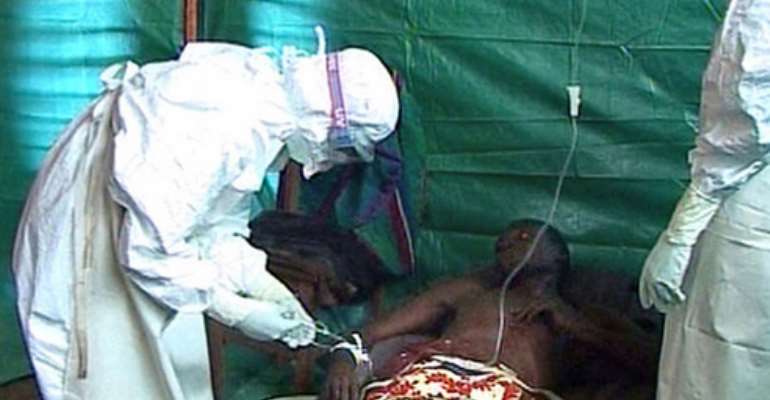Liberians Say ‘no’ To Big Hugs And Handshakes To Keep Ebola At Bay

At the entrances to private and public buildings in Monrovia, Liberia's capital, a new custom has emerged since the outbreak of the Ebola virus: visitors wash their hands upon entering and exiting. Tap buckets conveniently placed in hallways dispense a mixture of water and chlorine or bleach from which people wash their hands.
Gone are some of Liberians' endearing social rituals such as a kiss on the cheek, friendly hugs or handshakes, or warm embraces between parents and children. Since the Ebola outbreak, authorities have been advising the public to be more hygienic, including frequent washing of hands and avoiding physical contact with bodily fluids from the sick or dead bodies.
Traditional family care practices and burial rituals that involve close contact with an infected body have contributed to the rapid spread of the disease. Customarily, Liberians wash, clean and dress the remains of their loved ones before interment.
People have also been warned against eating game meat, what Liberians call bush meat. In rural areas, bush meat is an important source of protein and income for hunters. Communities are being compelled to change their diets. Experts believe fruit bats are the carriers of the virus.
Ebola has changed the way people relate to each other at home and at work.
*Lisa White works for the UN Mission in Liberia.
By Franck Kuwonu and Lisa White*
